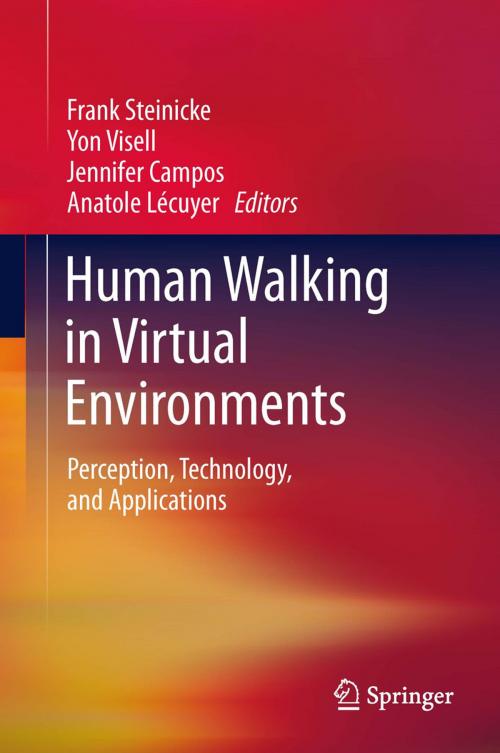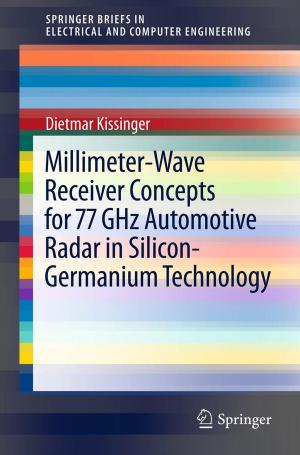Human Walking in Virtual Environments
Perception, Technology, and Applications
Nonfiction, Science & Nature, Technology, Automation, Computers, Advanced Computing, Engineering, Computer Vision| Author: | ISBN: | 9781441984326 | |
| Publisher: | Springer New York | Publication: | May 15, 2013 |
| Imprint: | Springer | Language: | English |
| Author: | |
| ISBN: | 9781441984326 |
| Publisher: | Springer New York |
| Publication: | May 15, 2013 |
| Imprint: | Springer |
| Language: | English |
This book presents a survey of past and recent developments on human walking in virtual environments with an emphasis on human self-motion perception, the multisensory nature of experiences of walking, conceptual design approaches, current technologies, and applications. The use of Virtual Reality and movement simulation systems is becoming increasingly popular and more accessible to a wide variety of research fields and applications. While, in the past, simulation technologies have focused on developing realistic, interactive visual environments, it is becoming increasingly obvious that our everyday interactions are highly multisensory. Therefore, investigators are beginning to understand the critical importance of developing and validating locomotor interfaces that can allow for realistic, natural behaviours. The book aims to present an overview of what is currently understood about human perception and performance when moving in virtual environments and to situate it relative to the broader scientific and engineering literature on human locomotion and locomotion interfaces. The contents include scientific background and recent empirical findings related to biomechanics, self-motion perception, and physical interactions. The book also discusses conceptual approaches to multimodal sensing, display systems, and interaction for walking in real and virtual environments. Finally, it will present current and emerging applications in areas such as gait and posture rehabilitation, gaming, sports, and architectural design.
This book presents a survey of past and recent developments on human walking in virtual environments with an emphasis on human self-motion perception, the multisensory nature of experiences of walking, conceptual design approaches, current technologies, and applications. The use of Virtual Reality and movement simulation systems is becoming increasingly popular and more accessible to a wide variety of research fields and applications. While, in the past, simulation technologies have focused on developing realistic, interactive visual environments, it is becoming increasingly obvious that our everyday interactions are highly multisensory. Therefore, investigators are beginning to understand the critical importance of developing and validating locomotor interfaces that can allow for realistic, natural behaviours. The book aims to present an overview of what is currently understood about human perception and performance when moving in virtual environments and to situate it relative to the broader scientific and engineering literature on human locomotion and locomotion interfaces. The contents include scientific background and recent empirical findings related to biomechanics, self-motion perception, and physical interactions. The book also discusses conceptual approaches to multimodal sensing, display systems, and interaction for walking in real and virtual environments. Finally, it will present current and emerging applications in areas such as gait and posture rehabilitation, gaming, sports, and architectural design.















